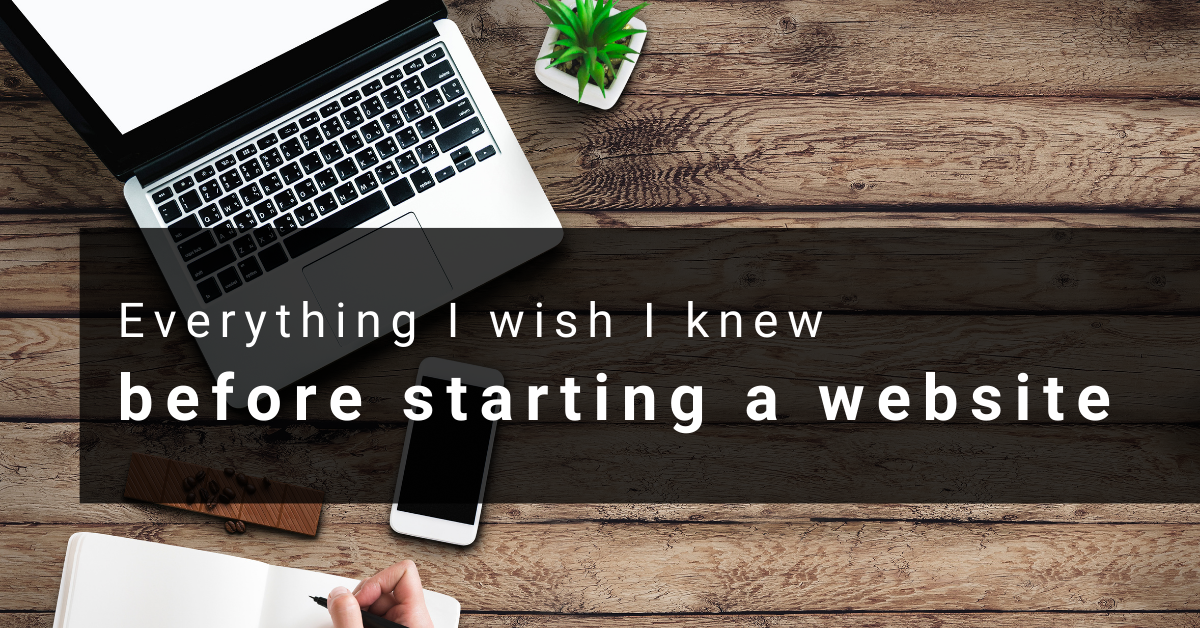When starting my website, I made lots of mistakes. Yes, mistakes are human, and I learned from them. But still, some of these mistakes cost me money I could have used somewhere else. The mistakes I made could have been avoided if I had done my research correctly. The thing is, when you start a website, it is difficult to get a solid overview of what you should know.
That’s why, in this blog post, I decided to start from scratch with you guys. I’ll tell you everything I wish I knew before starting a website. This way, you can avoid making the same mistakes I did. Moreover, after reading this blog post, you’ll be able to make clear and informed decisions on how to implement your website.
The first decision you should make when starting a website is what platform you want your site to be built on. There are MANY options out there, so it can be hard to choose. But I’ll let you know what I recommend after doing my research.
1. Choose what platform you want your site to be built on
Again, there are many different platforms to choose from when starting a website. There are three primary free and open-source web content management systems; WordPress, Drupal, and Joomla. But there are also lots of other website building platforms (e.g., SquareSpace, WebsiteBuilder, Wix, etc.).
The main thing to consider is that when you are starting a website, you want to be able to modify your website and grow it as you are also growing your business. Therefore, you should think long-term when you make this decision. Designing your website on SquareSpace or Wix is easy. You can basically do it in an afternoon, and it doesn’t require a lot of IT-skills. The problem, though, is that your website is then depending on this provider. So, you can’t change your mind later on and switch platform. You’ll have to deal with the limitations of the platform you chose, and they all have lots of limitations. For example, some platforms only offer specific payment methods; others are not really good for SEO. So, in other words, you are choosing ease of use over flexibility and adaptability.
Concerning the free and open-source web content management systems (WordPress, Drupal, and Joomla), they require a little bit more IT-skills than the other website building platforms. But the thing is that when you choose one of these, you choose freedom. Don’t worry though, you don’t need to be a programmer to use them either. WordPress is easier to use then the two others. Even someone with limited experience with computers can get around it. WordPress is also the most used website platform in the world because it is an amazing tool.
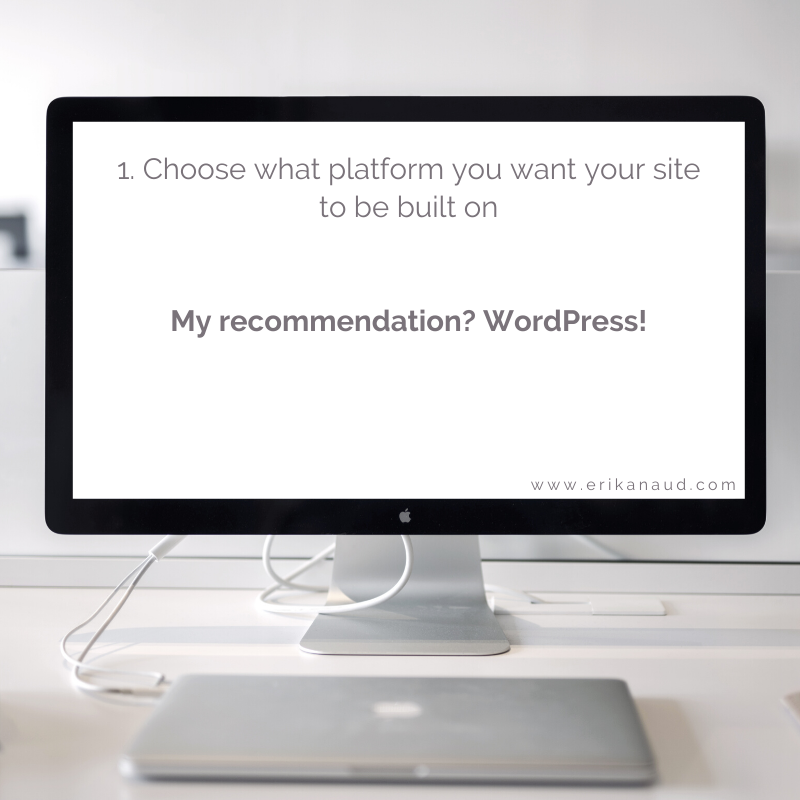
If you chose to go with an easy building platform like SquareSpace or Wix, don’t worry about this next step, it is not necessary as they will always host your website for you.
2. Choose between Self-hosted and a hosted website platform
The second decision you need to make when starting a website is whether you want to Self-host your website or use a hosted website platform. I’ll tell you the advantages and disadvantages of both strategies, and again, in the end, I’ll let you know what I recommend.
Without getting too technical, hosting a website refers to storing it, files and media included on a server. So, you decide which building platform you want to use (e.g., WordPress) and then, you need to choose where you want to store your WordPress website. There are different ways of doing it, but mainly, you can either self-host your website or use a hosted website platform. If you self-host your website, you will store the files yourself (with the help of a self-host platform), and you will have access to your server. On the contrary, if you go for a hosted website platform, you will pay for a company to host it on their servers, and you won’t have access to the server.
Both solutions have their pros and cons that we will discuss below.
Hosted website platforms
There are many hosting platforms out there, and most of them even offer a free option. To name a few examples, you have WordPress.com, Joomla.com, Wix, GoDaddy, etc.
Essentially, if you choose one of these platforms, you’ll mainly be trading customizability for ease of use. In other words, these website platforms are straightforward to use and implement, but they don’t give you as much freedom as hosting yourself. So, maybe they are a good option for you at the moment, but if you grow and want more freedom, it might become quite annoying.
Also, they are quite expensive. The free and cheap memberships are VERY restrictive, so you’ll soon want to pay for more. And, the memberships that allow more freedom are very costly, and not at all worth it.
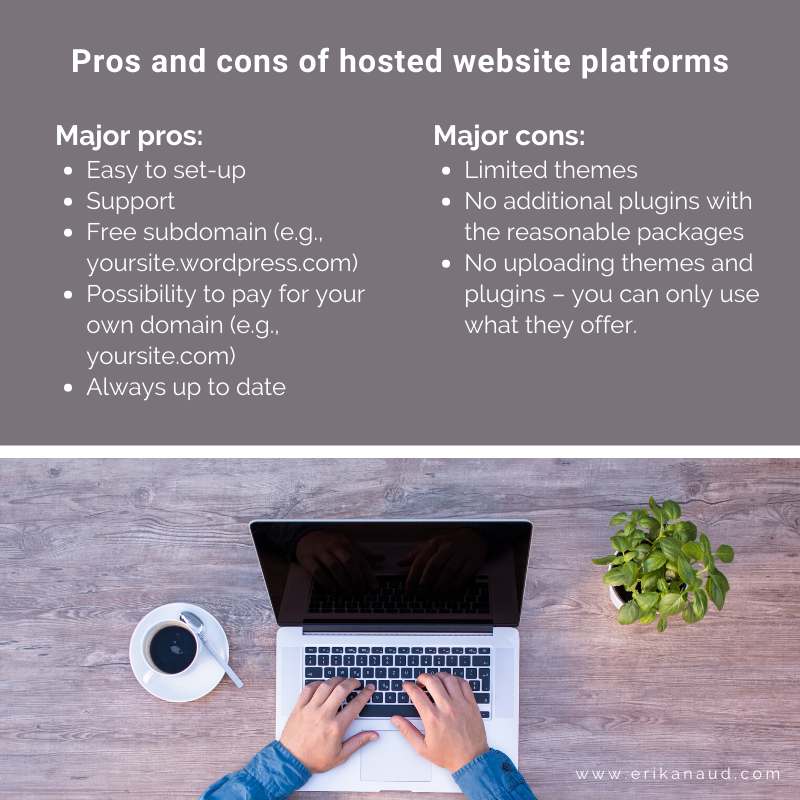
Do you know the difference between WordPress.com and WordPress.org?
WordPress.com and WordPress.org are NOT the same thing. I was actually unaware of that when I started my website. So basically, the difference is that WordPress (WordPress.org) is an online, open-source website creation tool written in PHP. It is the platform that you choose in step #1. WordPress.com, on the other hand, is a hosting platform for WordPress websites. So, you don’t need to host on WordPress.com to have a WordPress website. You can also have a WordPress website on another hosting website. For example, you can also have a WordPress website on Godaddy.com.
I used WordPress.com at the beginning, and I liked how easy it was. They had fantastic support. They replied really fast and helped as much as they could when I had questions. But I was annoyed by the fact that I couldn’t get additional plugins. So basically, I was using a WordPress platform to design my website, but I didn’t have all the advantages that should come with it. WordPress.com was limiting me. If I wanted more freedom, I needed to upgrade my membership to the “Business” plan, which is quite expensive. Way more than self-hosting!
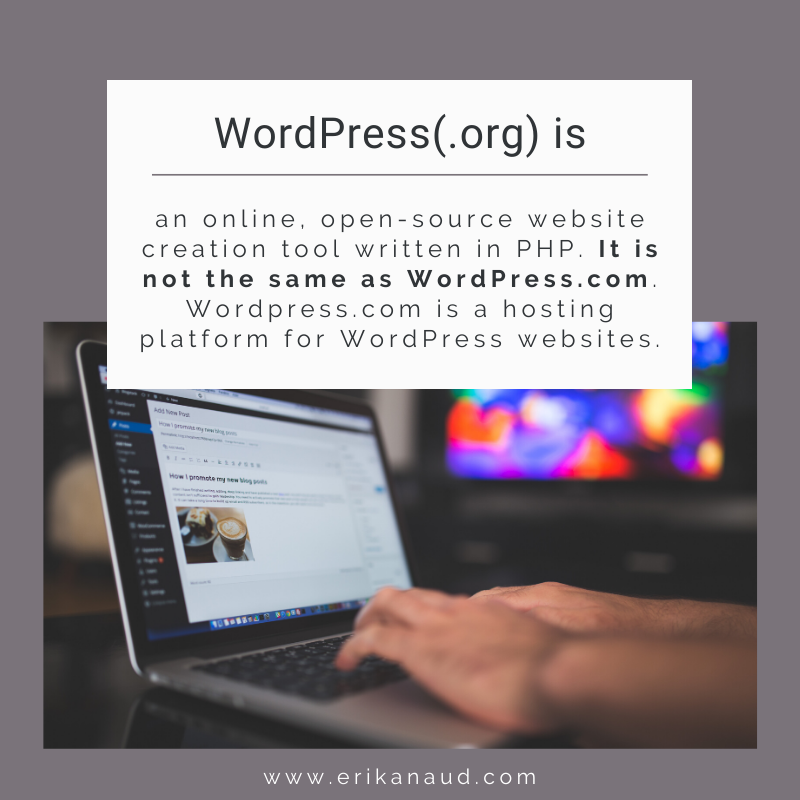
Self-hosting
When you self-host your website, you have complete control over it. You have all the freedom you need to always adapt your website to all situations. But it requires a bit more work behind the scenes. For example, you’ll need to set up SSL certificates, manage upgrades, etc. It is not as hard as it seems, but it is definitely more work than choosing a hosting platform.
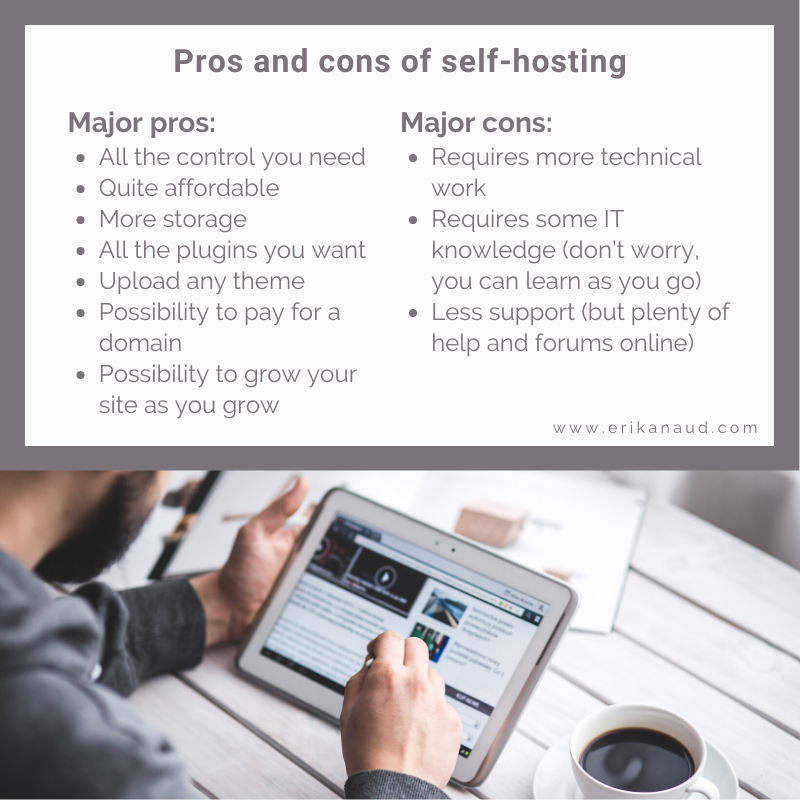
Think about it as designing an apartment. If you are renting the apartment, your options are limited. You can modify the apartment, but you need to follow the rules of your landlord. If you own the apartment, however, you can basically do anything you want, but you’ll also be responsible for it. Self-hosting is like owning. It’s freedom and control over usability.
Yes, you got it right, I’d always recommend to self-host.

3. Choose a self-hosting platform
So, don’t worry, self-hosting doesn’t mean you have to host your website on your computer or get a HUGE external server at home, haha. Some websites offer you to “rent” a spot on their server to self-host your website.
Again, there are many options (e.g., BlueHost, Hostgator, SiteGround, etc.). I do not know all of them, but I did a bit of research around when I chose the self-hosting platform I am using. I looked around for a solution that was reasonable and that had good customer service. Because it was my first-time self-hosting, I really wanted good customer service to be sure I could get the help I needed.
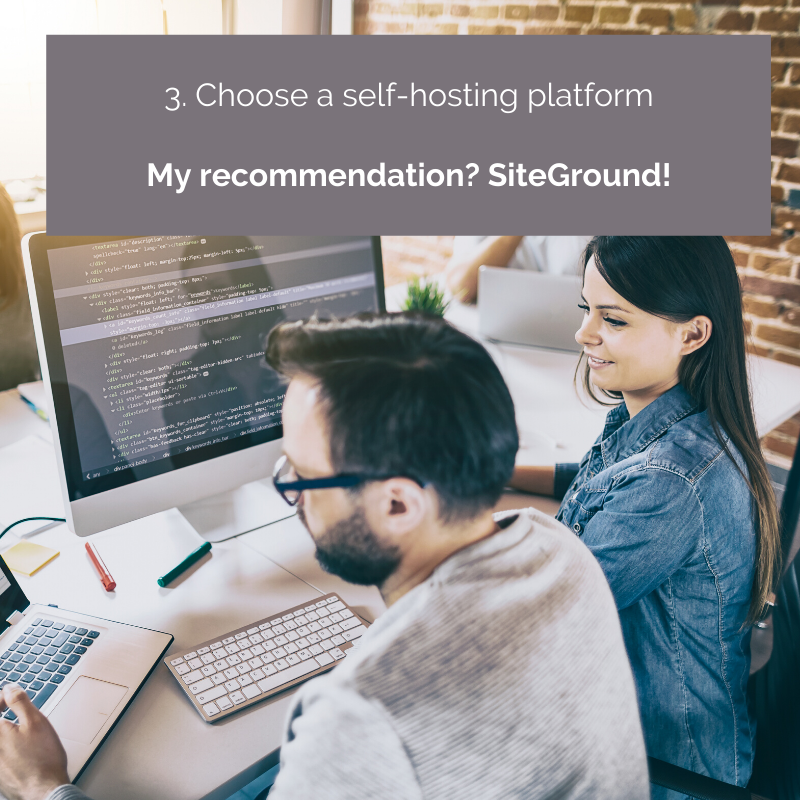
I have been using SiteGround since January 2020, and I am super happy about it. It was very easy to set-up, and I got help from them to transfer my website from WordPress.com to their server. Moreover, every time I’ve had problems or questions, I got amazed by theircustomer service. You can call or chat with them 24/7. Plus, their staff are very polite and super helpful. So far, I have no complains.
You can easily get started on your WordPress website on SiteGround here.
I know this is a lot of information, and it is hard to process. Starting a website does require you to acquire new knowledge. I didn’t have any experience in Website design when I started my blog. But, keep in mind, it isn’t as hard as you think. When in doubt, google it. You’ll find lots and lots of helpful articles and forums online to help you on this journey.
But a piece of advice, once you are settled on SiteGround, and you begin to design your website, take your time to choose a theme that suits you well. Your theme is the frame for your website. You want to be 100% sure of your choice before you start designing. You can read more about choosing a theme here.
I hope this article wasn’t too technical. I really tried to make it as easy to understand as possible. Hopefully, now, starting a website won’t be that challenging for you. Anyway, if you liked this post, and would like to stay updated, remember to subscribe to my newsletter below. You’ll be notified when I upload a new blog post.

